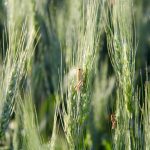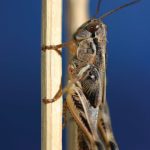
Tag Archives insects

Best to be scouting for insect pests
'Definitely' watch canola for flea beetles

Flea beetles: how to improve spray results
Five important tips when applying foliar insecticides

Prairie insect pest outlook for 2023
Grasshoppers top the threat list but flea beetles, wheat midge, lygus bug, cutworms, bertha army worm and wheat stem sawfly are also risks in some areas

The grasshopper species that damage crops
Q & A with an expert

Matador, Voliam insecticides back in ‘limited’ release
Revised labels prohibit feeding, foraging of treated crops

French agency drops fumigant ban on non-EU grain exports
Limit on phosphine won't apply if use required for export

France says pesticide ban will not hit grain exports
Fumigant can't be in 'direct contact' with grains

Tips for flea beetle control
The pros and cons of insecticide seed treatments and in-season foliar sprays, application advice and a concerning trend

How to manage without lambda-cyhalothrin in 2023
Alternatives to control most insect pests exist but attention to label recommendations, product rates and timing is important

Farmers discuss how lambda-cyhalothrin regulation changes will affect them in 2023
Concerns include the loss of another crop protection tool, lack of science-based reasons for excluding feed crops from the label and costs and availability of alternative insecticides


